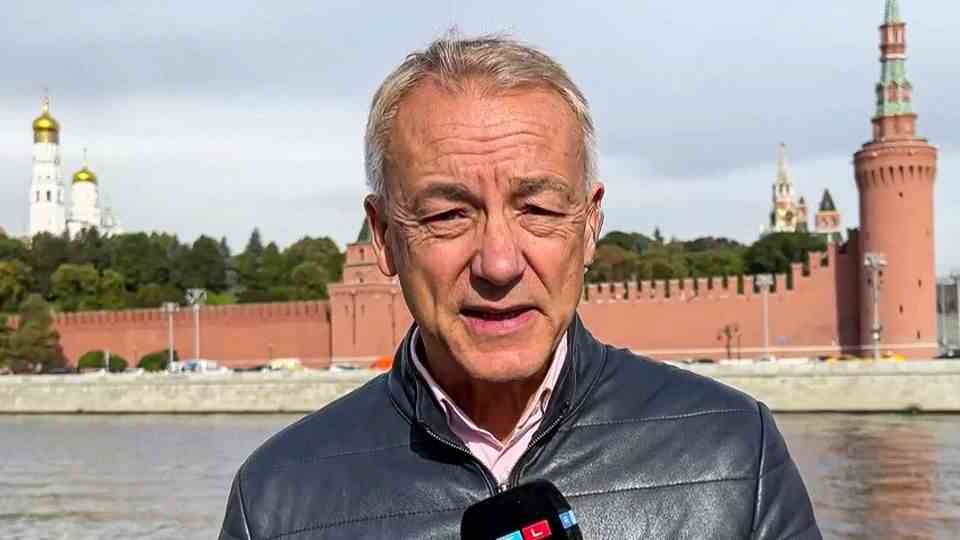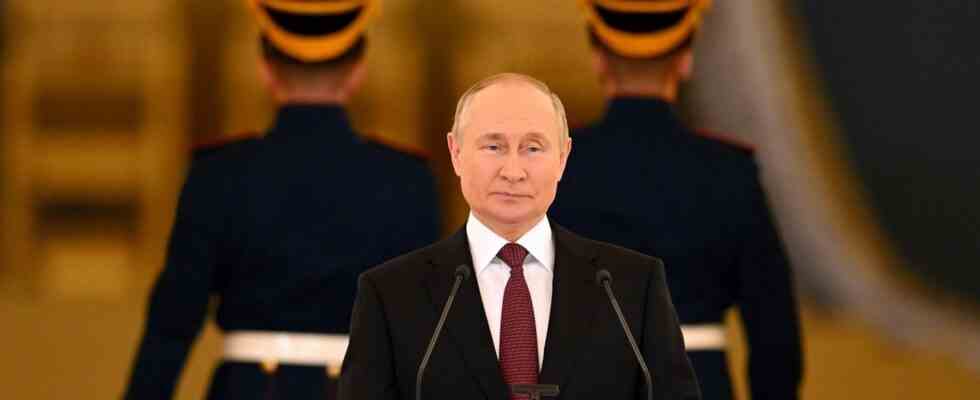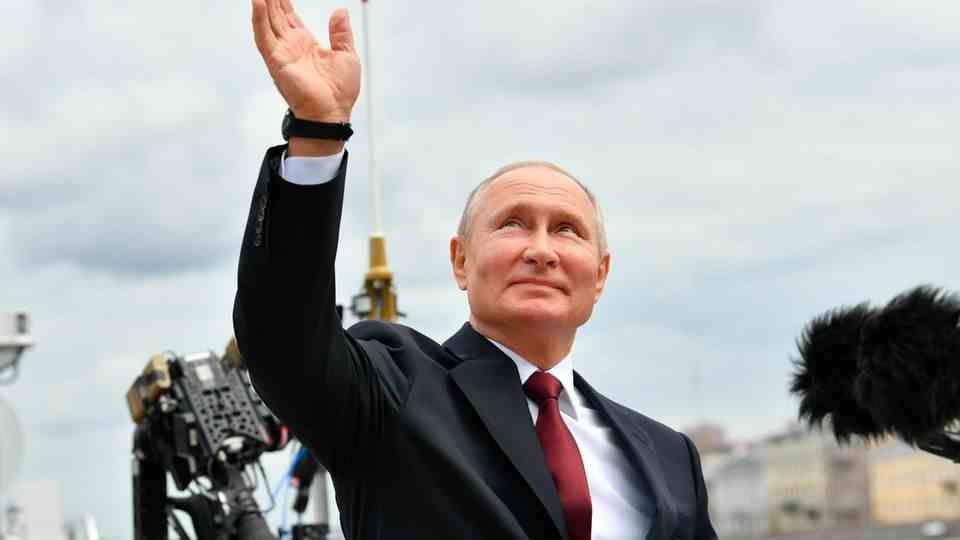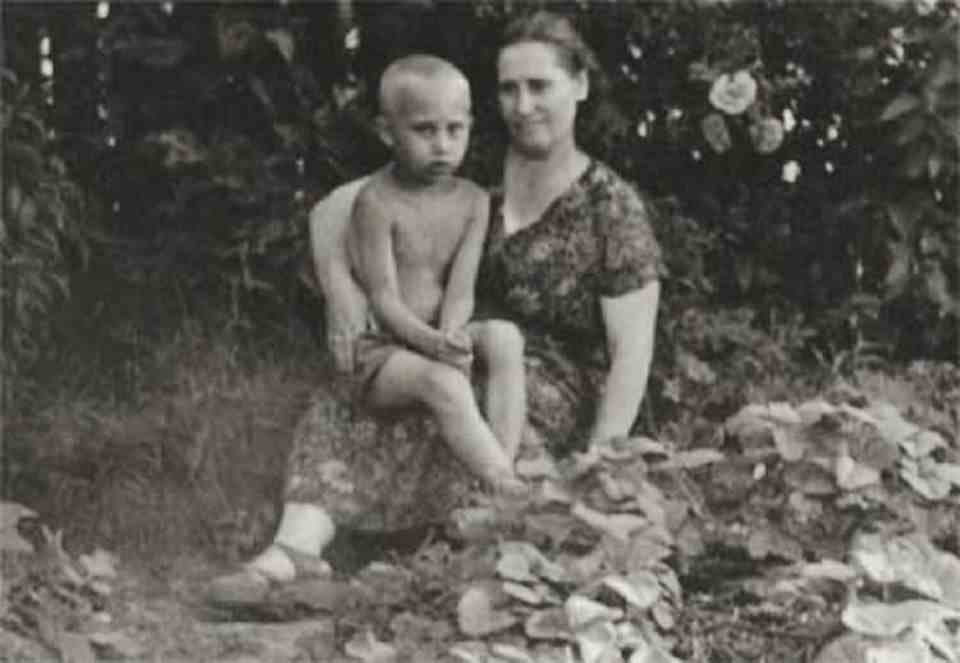For weeks, the ground was prepared in Russia for this step: mobilization. Because so far, the mere use of the word has been tantamount to political suicide. On Wednesday morning, Vladimir Putin nevertheless put it in his mouth and announced the bad news.
“Go to sleep!” With this comment the boss of the propaganda station RT Margarita Simonian ended an evening of torturous waiting. The first reports emerged on Tuesday afternoon that Vladimir Putin wanted to address his people on the same day. In the morning, the self-proclaimed republics of Donetsk and Luhansk announced their intention to hold referenda on joining Russia. Will the President officially announce the annexation of Ukrainian territories? Or say the dreaded word mobilization? Driven by these questions, millions of Russians sat in front of their television screens in the evenings.
But nothing happened!
For the first time in recent history, an announced appearance by Putin did not take place. Finally, in the morning, the news rings out that Russia has been so afraid of for the past few weeks: Putin announces partial mobilization.
“If the territorial integrity of our country is threatened, we will absolutely use all available means to protect Russia and our people. This is not a bluff,” said the Kremlin boss.
The bad news in a few sentences
What follows is a morbid lesson in a story of its own. Putin did just that on February 22 and 24, when he declared the independence of the pro-Russian republics and then announced the invasion of Ukraine. But there are only a few sentences that announce the bad news.
“In this situation, I consider it necessary to make the following decision – it is entirely appropriate to the threats we face – namely: to protect our Fatherland, its sovereignty and territorial integrity, the security of our people and people in the liberated areas, I consider it necessary to support the proposal of the Ministry of Defense and the General Staff to carry out partial mobilization in the Russian Federation.”
Putin deliberately avoids the term general mobilization: “I repeat, we are talking about partial mobilization. This means that only citizens who are currently in reserve will be drafted, and especially those who have already served in the armed forces, via military specializations and relevant experience.”
He tries to calm things down and assures: “Those who are called up for military service are definitely subjected to additional military training before they are sent to the units.”
“The decree on partial mobilization has been signed,” Putin finally announced. For many in Russia, the words sound like judgment.

“The comfortable life is over, go to war”
“I’m predicting a strong outburst of negativity, an extreme increase in the willingness to protest, and a rapid fall in government ratings,” said political scientist Abbas Galliamov, who himself has written speeches for Putin in the past, in one Conversation with Alexej Navalny’s team. “Putin is breaking the social contract he once made with his people: you don’t get involved in politics, and I’ll ensure a reasonably tolerable standard of living and the feeling of belonging to a great nation.”
Now Putin says to the people: “The comfortable life is over, go to war.” But if one party breaks a contract, the second will no longer feel bound by the terms of the contract either.
Expert expects uprisings
So far, using the word mobilization in Russia has amounted to political suicide. Now the situation in the Kremlin is apparently so desperate that even this risk is accepted. “I think it’s absolutely realistic to expect sudden uprisings,” says Galliamov. Not today. But to the extent that people feel the Kremlin’s decision first-hand.
“However, when the understanding prevails that the old life is over and a new one has begun – where instead of life dying could begin – it will lead to riots and protests. And it is by no means certain that the National Guard will crush them all becomes.” Because this special unit has already been badly shaken in the Ukraine, and the enthusiasm for the so-called special operation is no longer planned.
Panic begins in Russia
“We’ll leave the ‘part’ out of partial mobilization and face the truth: It’s a matter of mobilization in the country,” journalist Sergei Aslanijan describes the situation in Russia Conversation with the team of the former oligarch and current dissident Mikhail Khodorkovsky. “As many people will be raised as you want to throw in front of the tanks.”
“Panic is starting in the country. Especially given that students have been threatened.” With this, Aslanyan is alluding to the statements made by Defense Minister Shoigu. Following Putin’s statement, he said in an interview with the state broadcaster “Russia 24” that 300,000 reservists who are to be mobilized are only a fraction of the available forces. A total of 25 million Russians could potentially be mobilized. But don’t touch students. The aim is to draft people who have already served and have military experience.
“When Shoigu says that students are left alone, it means the opposite,” says Aslanyan. “In this game, words try to cover up the situation. But in reality it means: Now the end has really come.”
Broadcast on Alzheimer’s following Putin’s statement
How much the Kremlin fears that the population will see through this game is also shown by the program on state television. Following the morning’s statements by Putin and Shoigus, the two largest state broadcasters, Pervyi Kanal and Rossiya 1, switched to entertainment. And that despite the fact that entertainment formats on state TV have become very rare in recent months. But now the viewers were told what Alzheimer’s means in the program entitled “Zhitj Zdorowo”, which can be translated as both “Healthy life” and “Life is great”. Did someone consciously miss the irony?



